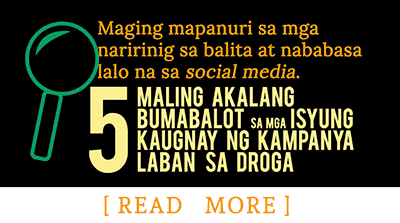In Bicol, organic farming practices do not only make healthy options available to the community. These also make enough food and farm needs for all. Tunay na sapat.
For this, Bicol farmers are this months’ cream of the organic crop.
The Philippine Misereor Partnership, Inc. (PMPI) is pleased to announce the June 2015 winner of Sapat Dapat Lifestyle Contest.
Headed by Bicol Consortium for Development Initiatives Inc. (BCDI), an organization that promotes sustainable and eco-friendly farming practices, different organizations of organic farmers have proven that farmers can feed their community without relying on toxic chemicals.
BCDI is a coalition of development organizations and church-based groups across Bicol Region. It has a leading track record on developmental assistance to farmers and other rural community members of Bicol for sustainable livelihood. The benefits cover not just the member organizations, but also the surrounding communities.
One of the projects of BCDI is the Organic Agriculture-based social enterprise for the small farmers. Five municipalities of Bicol are involved: Bato, Camarines Sur, Polangui and Libon in Albay, Castilla and Donsol of Sorsogon.
Started in 2013, the project aims to improve the productivity of farm lands in Bicol to promote food security in the region. Farmer organizations have been strengthened, making them self-sustaining and knowledgeable in sustainable agricultural practices. Farmer organizations have also improved their participation in community decision-making, working hand-in-hand with LGUs. Organic backyard, sustainable table.
[[IMAGE HERE]]
SALAD AND POULTRY. Bicol farming organizations raise and promote organic produce, including green-leafy vegetables, poultry products, and livestock.
In Community Learning Farm (CLF) of Bato, ideas and practices of farmers converge and transcend. Here, different farmer organizations from different barangays of Bato are able to develop their crops and produce organic farm inputs.Organic backyard, sustainable table
“At present, we are promoting climate-smart agriculture technology,” said Jean of Social Action Center (SAC) in Legazpi. “This helps us increase farming productivity; for our crops to be able to survive through the extreme changes of weather; and for our surrounding ecosystem to be able to regenerate to sustain the support we need in farming.”
The one-hectare facility used to be a rice farm, according to Nick Beato, project coordinator of SAC Legazpi. “But the farmers have developed the area to support different crops,” he added.
Farmers are producing watermelon, ampalaya, lettuce, melon, eggplant, and many others. The farm is also producing organic livestock, poultry, vermi production, and other organic inputs for farms and gardens, such as fertilizers, compost, and soil enhancer.
[[IMAGE HERE]]
HEALTHY BOOSTS. To assist crop produce and soil, barangay Libtong Organic Farmers Association (LOFA) one of the participants of BCDI project, put emphasis on producing only organic farm inputs such as soil enhancer, fertilizer, and compost. Organic fertilizers are one of the products of LOFA.
“Participating community have their own community nursery and seedbank,” said Beato. “Here in CLF, this is where we develop crops, which are only open-polinated variety (OPV) seeds. We avoid hybrid seeds because it’s not sustainable. Most are only good for one planting. OVPs can be continuously plant.
ORGANIC SOLIDARITY. Members of different organic farmers association of the municipality of Bato share light moments during the visit of PMPI at the Community Learning Farm in Bato, Camarines Sur.
[[IMAGE HERE]]
Seeds of hope
One of the member farmers expressed his gratitude on being part of the project.
“Organic farming does not simply help provide our family’s daily needs,” said Dante Cordes of barangay Buluang Agriculture Farmers’ Association (or BOFA). “We have become aware of the need to practice healthy ways in farming. Because harmful chemicals does not only destroy our environment, but also our body.”
From BOFA, about 30 farmers are involved in the project of BCDI.
“Learning to raise kitchen garden has been very fruitful,” Jesus Morillo, 34, president of barangay Salvacion Organic Farming Association (SOFA) said. “Because before, we need cash to buy vegetables and spices for our kitchen. Not anymore. We only need to harvest the healthy crops we’ve been planting in our backyard.”
Morillo added that through being organized, farmers find it easier to relate to other organizations and agencies, such as the Department of Agriculture. Because of this, he said, it is easier to access available aid and assistance. Salvacion is one of the community partners in Bato town.
“We are also sharing to the communities the importance of organic farming,” Arlene Maraña, a member of barangay Libtong, said. “The buyers are amazed that our farm and garden produce fresh and healthy vegetables, despite having used only organic fertilizers and not harmful synthetic chemicals industrial farms use.”
She emphasized the importance of protecting the land, where they plant and get their livelihood from.
“As we live healthy, we are assisting the soil in helping us produce better crops. Because if we use harmful chemicals, the soil become acidic and we will not be able to plant anymore,” she ended.
Watch this digital short that PMPI produced for BCDI. Happy viewing!

